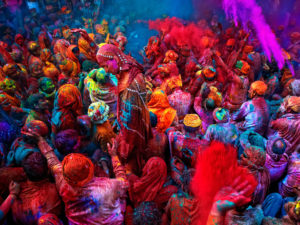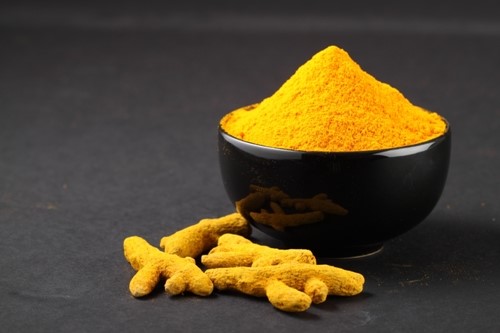 As we quickly approach this most anticipated and joyous event on the Hindu calendar, ‘Holi’, otherwise known as ‘Phagwa’, signifying the arrival of Spring and the playfulness of Shri Krishna; it is important that we take a few moments to quickly touch on a few things that can make this event non-harmful to people or the environment.
As we quickly approach this most anticipated and joyous event on the Hindu calendar, ‘Holi’, otherwise known as ‘Phagwa’, signifying the arrival of Spring and the playfulness of Shri Krishna; it is important that we take a few moments to quickly touch on a few things that can make this event non-harmful to people or the environment.
In order to celebrate an eco-friendly Holi we need to zoom in on two (2) things:
- Use of non-toxic or herbal ‘Abeer’ or ‘Gulal’
- Water conservation
Since we’ve been toddlers, we’ve always admired the vibrant colours of the ‘abeer’ powder or ‘gulal’ as it is rightly named. What we perhaps did not know are the ingredients of this beautiful powder and how the manufacturing process has changed over the years, resulting in a product which is now very far from natural or healthy.
In earlier times when festival celebrations were not so much commercialized, Holi colors were prepared from the flowers of trees that blossomed during spring, such as the Indian Coral Tree (parijat) and the Flame of the Forest (Kesu), both of which have bright red flowers. These and several other blossoms provided the raw material from which the brilliant shades of Holi colours were made. Most of these trees also had medicinal properties and Holi colors prepared from them were actually beneficial to the skin.Over the years, with the disappearance of trees in urban areas and greater stress for higher profits these natural colours came to be replaced by industrial dyes manufactured through chemical processes.
Below is a list of the various Holi Paste type colours and the harmful effects on the human body.
With that said, what can we do to ensure that we’re not using anything that can potentially cause harm to one’s health?
Firstly, we can look at making our own natural powder and semi-liquid dyes/pastes using items in our kitchen and around us such as TUMERIC(natural bright yellow hue) and ‘OUCOU’ which comes from the Roucou plant seeds which gives a natural almost fluorescent orange colour as shown below.
‘OUCOU’ SEEDS & PASTE
Secondly, you can from now, make contact with various suppliers in Trinidad, requesting NATURAL HERBAL GULAL, informing them of the toxicity associated with some of the chemical dyes being purchased. The smell of the gulal is typically a good indicator. Natural herbal dyes will have a pleasant and sometimes flowery smell. You can also look at the option of purchasing from online stores which are certified global herbal gulal providers.
Water conservation – SWAHA for many years, has been promoting the use of dry powders at Phagwa events nationally, rather than the liquid form. This choice has significantly reduced the volume of water being used at these celebrations and therefore acts as a form of water conservation. For those who may have never celebrated a ‘DRY HOLI’, consider going waterless and experience the fun of literally showering the people you love and care with the vibrant, healing hues of nature.
| As Protectors of our People and Planet, let us work together to ensure a fun, safe and eco-friendly Holi 2017. Jai Swaha Maataa!
|
Lydia Singh
BSc. Eng., PMP, LFA




